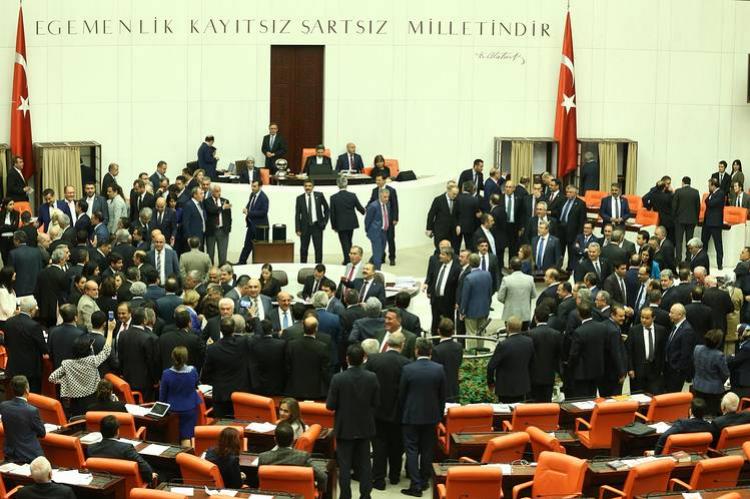Independent article includes factual mistakes about Turkey’s constitutional amendments and parliamentary immunity of deputies
Article wrongly states that only parliamentary immunity of HDP deputies was lifted and latest constitutional changes empowered the president at the expense of parliament and judiciary
On 20 June 2018, the Independent published an article about Turkey’s snap elections. However, the article contained factual mistakes.
Firstly, the article claimed that Turkey’s parliament voted to lift the parliamentary immunities of the deputies of the Peoples’ Democracy Party (HDP) in 2016. In fact, the parliament lifted the immunities of members of all parties in the parliament, not just the deputies of the HDP.
Secondly, the article alleged that Turkey’s latest constitutional amendments in April 2017 would empower the presidency at the expense of the parliament and the judiciary. In fact, the constitutional changes have reinforced the separation of powers in Turkey, thus empowered both the legislative and judiciary branches in the face of the executive. It also gave the parliament a bigger say than the president regarding the issues like the appointment of senior judges.
Claim: The parliament lifted the immunity “from HDP deputies”
Referring to the arrest of several HDP deputies on terrorism charges, the article stated that the parliament lifted the immunity of the HDP’s then-co-chair Selahattin Demirtas and other HDP deputies.
Article 83 of Turkey’s constitution grants parliamentary immunity for the deputies which prevents detention, interrogation, arrest or trial of deputies unless the parliament decides otherwise. On 20 May 2016, the parliament passed a bill to lift the immunities of 138 deputies who already faced criminal charges, not just the HDP deputies as it was claimed in the article. In fact, there were members of all the political parties represented in the parliament among those 138 deputies.
Claim: The latest constitutional amendments concentrate president’s power “at the expense of parliament and the judiciary”
The article stated that “a referendum passed last year changing the constitution will concentrate authority in the office of the president, at the expense of parliament and the judiciary.”
The presidential system limits the actions of the president by the parliament. The president can be held accountable and the parliament has control over the president including relieving him or her of duty. The president conducts an executive role while the parliament has an empowered legislative role. By separating executive and legislative powers and instituting control mechanisms, a system of checks and balances between the two is established in the presidential system.
Additionally, it will not be possible to take part both in the legislature and in the executive at the same time, unlike the case in the current parliamentary system. The membership of a member of the parliament will terminate if they accept to hold office as a minister, again reinforcing the separation of powers.
Moreover, any official within the executive, including the president, will be prohibited from presenting legislative proposals to the parliament, contributing to the parliament’s independence.
The constitutional amendments have also improved the independence of the judiciary. Under the amendments, the military courts were abolished. As a result, the judiciary is further unified; the principle of natural judge is fortified; and unfair rulings can be alleviated – all of which help enlarge the independence of the judiciary.
With military courts being abolished, the number of judges in the Constitutional Court assigned by the president has diminished by two. The parliament, which had no say in the previous system as to the appointment of members of the Council of Judges and Prosecutors, now elects seven members while the 16 appointed bureaucrats of the council will be completely effaced. Consequently, the parliament has been reinforced before the executive and the closed bureaucratic structure of the judiciary, which was used to be a tool of tutelage in the previous system, is now subject to the parliament’s control, making the judiciary a more democratic institution.
Furthermore, the temporal gap between times in office of the president and the members of the Constitutional Court, as a Constitutional Court’s judge’s term far exceeds that of a president, will function as part of the mechanism of checks and balances between the two powers, reinforcing the impartiality and the independence of the most senior judges in the Turkish legal system.To have a deeper insight about Turkey’s latest constitutional amendments and the presidential system which will enter into force following the presidential and parliamentary elections on June 24, please click here.



